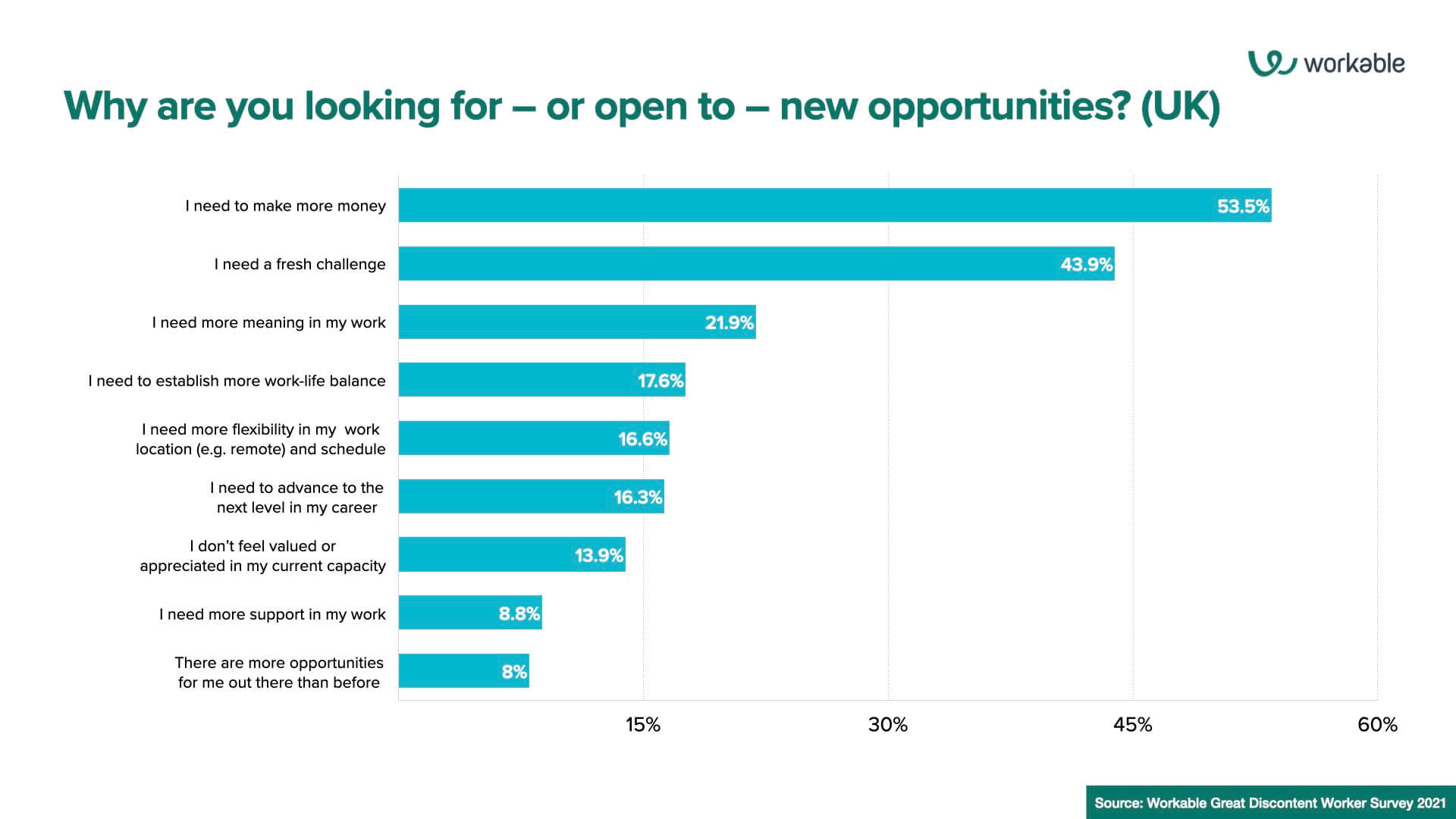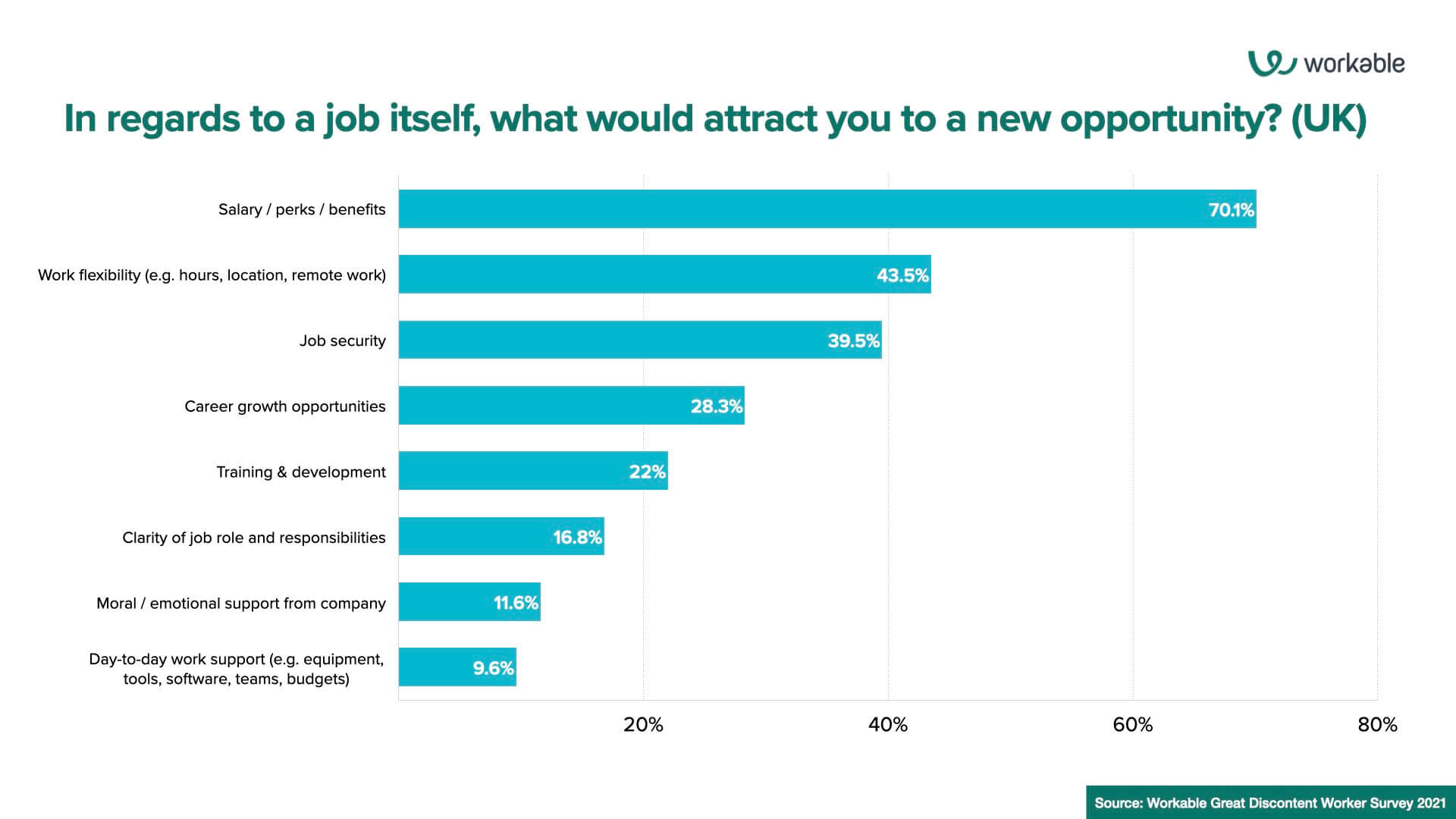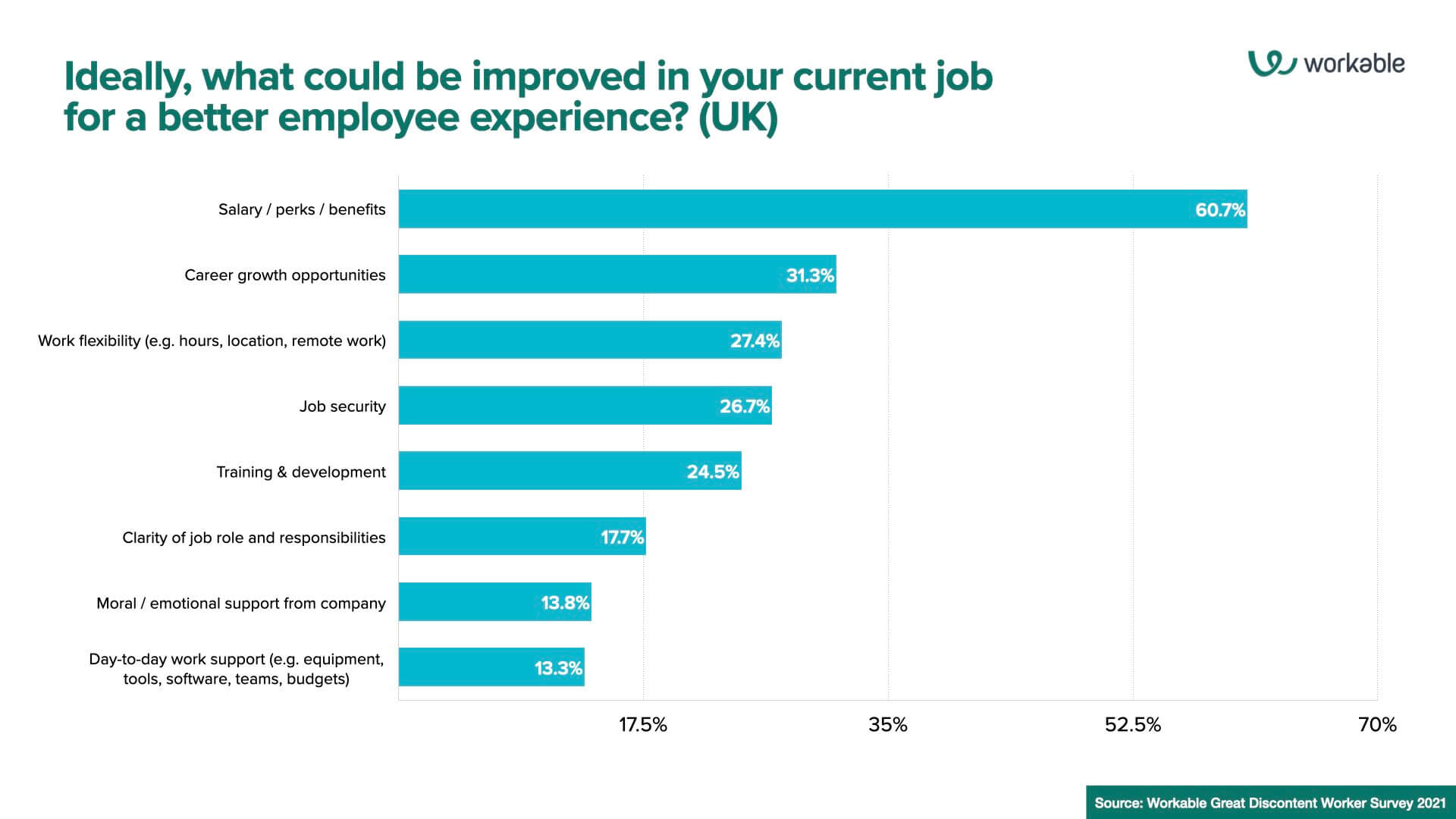How valued is salary in the UK? Quite a bit, actually
At the very core of the traditional worker-employer relationship is compensation. And unsurprisingly, our survey results from our Great Discontent study involving 500 workers in the UK simply verify this reality. Salary is quite highly rated among UK workers.

The only real ‘surprise’, if there needs to be one, is that there are studies showing that other job attractors have grown in value – such as the willingness to take less salary in order to remain remote according to HR software provider CIPHR, and the value of perks over salary as a motivator, according to MetLife UK.
Our own dataset, however, finds that compensation remains a leading motivator when looking at career opportunities. A US-based respondent from our other survey report on the same topic puts it perfectly:
“Employees will go where the money is. And where they’re treated respectfully and valued. But, mostly, it’s the money.”
Money above all
As stated above, a vast majority of respondents are open to new opportunities, whether they’re passively open or actively looking. When we asked those respondents to choose from a list of top reasons why they’re open to new opportunities, more than half (53.5%) selected “I need to make more money” as a major reason.
Closely following in second place is “I need a fresh challenge”, with 43.9% citing that as a reason.
The need for more meaning in work is a distant third, at 21.9%.
We also asked respondents what would lure them from their present job to a new one, again choosing from a list of popular attractors. Again, compensation tops the list, with 70.1% of UK respondents citing that as a leading motivator when deciding to move to a new company.
Work flexibility (43.5%) and job security (39.5%) are the second and third-most popular attractors in a new opportunity.
One UK respondent noted their disappointment at their current employer cutting corners on compensation:
“The company pays less as we are touted as ‘independent contractors’, they can seemingly bend the rules.”
We know there are nuanced differences between what someone might be hoping to get in terms of a new job at a different company, and what they might want to see improved in their current capacity. It’s the difference between being ready to leave and being satisfied – albeit not 100% with one’s current working situation.
So we asked that question separately: what could be improved in your current job for a better employee experience?
Again, compensation is the number-one area where their current employer can improve, with 60.7% picking that as a top area in need of improvement.
It’s worth noting another comment from the US, on the importance of keeping salaries proportionally balanced throughout a company – especially when a company is growing and accumulating wealth:
“As a business owner, I understand that you can not cave to every whim your employees have, but instead of prioritizing balloon money bombs for executive persons, make the wealth of the company available to the people that make it happen. Smaller executive bonuses in favor of increased bonuses / benefits / perks for the workers/moving parts of a successful company.”
The different types of compensation
Now, compensation doesn’t necessarily mean only a base salary. It can also mean paid time off, paid vacations, bonuses, incentives, extra perks and benefits, company lunches, team outings, tuition or mortgage reimbursements, pre-tax benefits, and many other things.
Intangibles can include company-wide recognition, advancement potential, the ability to work remotely and on flexible schedules, mentorship, network building, and so on.
Even those intangibles – while still valued – aren’t worth as much as raw compensation. Support from their employer, whether it’s in the actual day-to-day work or moral/emotional support are at the bottom of both lists. This suggests that the traditional core elements of having a job (i.e. compensation, career opportunities, job security) remain paramount for workers.
The motivators are clear – the working population in the UK want and need to make more money. Full stop.
There’s just one little intangible that deserves a much deeper dive: work flexibility, which ranks highly across all these lists. We’ll take a deep dive into that in the next chapter.







